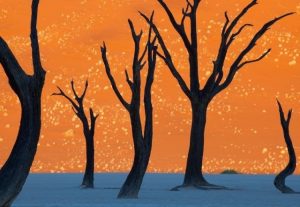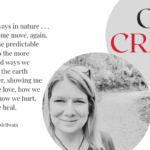A self-proclaimed tech-geek and amateur dog-trainer, new volunteer and first-year PhD student in fiction Brenda Peynado has a talent for incorporating her disparate interests into conversations at the CR office. A discussion about the midterm elections or streamlining our contact database can lead Brenda into an analysis of the male catcall in the Dominican Republic or a consideration of myth and realism in the novels of Isabel Allende. It’s this interest in the multifariousness of human consciousness, Brenda tells us, that attracts her to Leslie Parry’s haunting story “Vogelsong” (11.1)—the idea that a single person contains multitudes, and that the many can speak as one. Read on to discover why Parry’s story continues to fascinate and even disquiet us so many months after we first encountered it.
 Brenda Peynado: I’ve always loved the first-person plural. I love that it can propel the reader into dizzying relationships quickly, and then show how a whole group is haunted, how a whole group falls apart. “Vogelsong” is a beautiful example. Like a ghost story, the collective memory of the day a busload of blind schoolchildren came to the eponymous Florida attraction still lingers desperately in the staff’s imagination, spoiling the sanctuary they’d tried to build there. In turn, the collective character’s nostalgia of what they cannot keep forever chills the reader.
Brenda Peynado: I’ve always loved the first-person plural. I love that it can propel the reader into dizzying relationships quickly, and then show how a whole group is haunted, how a whole group falls apart. “Vogelsong” is a beautiful example. Like a ghost story, the collective memory of the day a busload of blind schoolchildren came to the eponymous Florida attraction still lingers desperately in the staff’s imagination, spoiling the sanctuary they’d tried to build there. In turn, the collective character’s nostalgia of what they cannot keep forever chills the reader.











